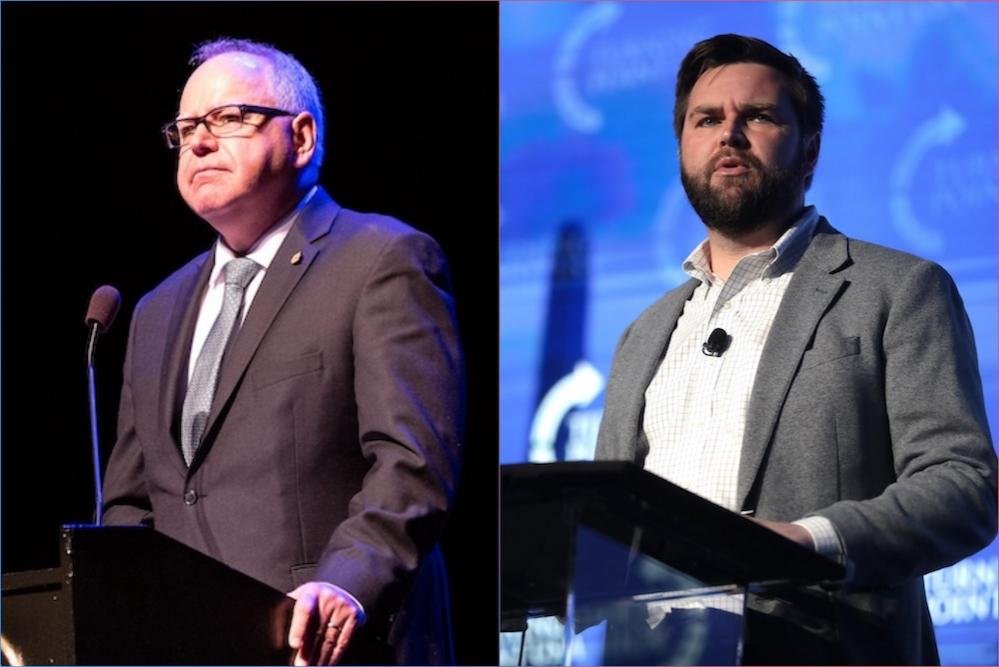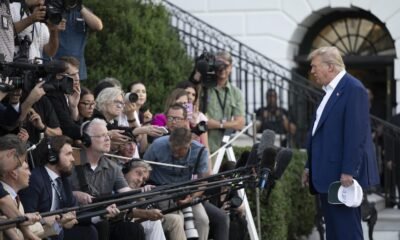News
VP Hopefuls Walz & Vance Clash Over Voting Rights

The selection of Tim Walz, governor of Minnesota, as Kamala Harris’ vice presidential running mate on Tuesday highlights a stark difference from JD Vance, who is on Donald Trump’s ticket, particularly concerning voting issues.
Governor Walz has built an extensive policy record on voting and election issues, emphasizing the expansion of voting rights. Since being elected in 2018 and reelected in 2022, he has signed multiple significant voting-related bills, most of which were passed under a fully Democratic-led legislature. Notably, in May 2023, Walz signed the Democracy for the People Act, which introduced measures such as automatic voter registration, early voter registration for 16- and 17-year-olds, expanded vote by mail, and increased language accessibility for voting materials.
In June, Walz restored voting rights to more than 50,000 Minnesotans on parole with felony convictions, marking the largest change in voter eligibility in Minnesota in over 50 years. Additionally, this year saw Walz’s endorsement of an omnibus election bill aimed at addressing issues resulting from the U.S. Supreme Court’s rollback of protections under the federal 1965 Voting Rights Act. This bill allows voters to challenge unfair electoral systems and ends prison gerrymandering.
Further cementing his position on election integrity, in July Walz signed a bill making Minnesota the first state to enforce comprehensive regulations on election-related AI deep fakes.
Conversely, JD Vance’s approach to voting policy diverges sharply. Elected to the U.S. Senate in November 2022, Vance has consistently opposed progressive voting policies and propagated false claims of voter fraud. He has advocated for parents having additional voting power to cast ballots for their underage children and has reiterated misinformation about election funding and undocumented immigrants voting.
Vance has also shown unwavering support for those who stormed the Capitol on January 6, 2021. He stated that, had he been vice president, he would not have accepted the electoral votes for Biden without Congressional debate over multiple slates of electors. He has maintained that the 2020 election had substantial issues and argued that an open debate in Congress would have been the appropriate course of action.
This article was originally published by Votebeat, a nonprofit news organization covering local election administration and voting access.















